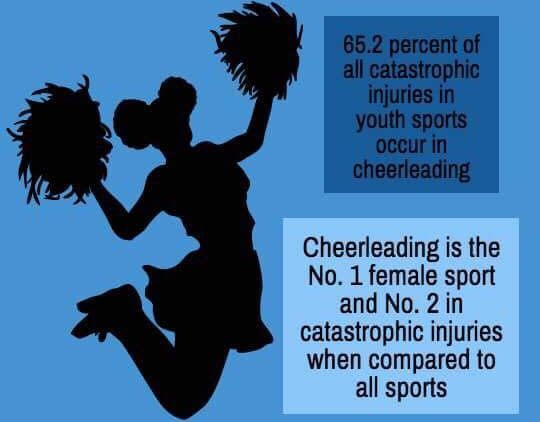Cheering for Cheerleading

Graphic by Ann Morgan Jacobi.
January 12, 2017
At Whitman, we promote acceptance and diversity, and we frequently—albeit subconsciously—encourage stereotypes.
When we think of cheerleaders, athlete isn’t a word that often comes to mind—a bias largely due to media outlets and pop culture. For years, cheerleading has been the subject of many jokes, even gracing movies and popular television shows like Saturday Night Live.
At the beginning of December, however, millions of cheerleaders got the athletic recognition they deserve—almost. The International Olympic Committee’s (IOC) executive board voted to recognize cheerleading as a “provisional” sport. Although it won’t be featured in the 2020 or 2024 Olympics, the International Cheer Union is now able to receive more funding for its athletes, and has the right to petition for the installment of cheerleading as an Olympic sport in the future.
This is a step in the right direction, though long overdue. Moving forward, cheerleaders should be given the respect and support they’ve earned.
While cheerleading may seem like a well-choreographed combination of yells, jumps and twirls, it’s frequently the product of hours of hard training—just like any other sport. It’s also an intensive physical sport that can easily—and often—results in injury. In fact, cheerleading ranks first in catastrophic sports injuries: 65.2 percent of all catastrophic injuries in youth sports occur in cheerleading, the National Center for Catastrophic Sports Injury Research at the University of North Carolina reports. Cheerleading is intense and competitive, and cheerleaders put themselves at risk of injury daily, just like any other athlete.
These cheerleaders also compete. There are three divisions within MCPS, and teams within each division compete throughout the year. Whitman cheer usually has three competitions per year: counties, an all-star competition and a smaller competition hosted by Whitman. Our cheerleaders won D3 counties two years in a row and are being promoted to D2.
While cheerleading may not be a traditional sport, it’s important that we recognize and accept nontraditional activities. This recognition from the IOC is only a first step in the right direction. It’s time we cheer on our cheerleaders.






